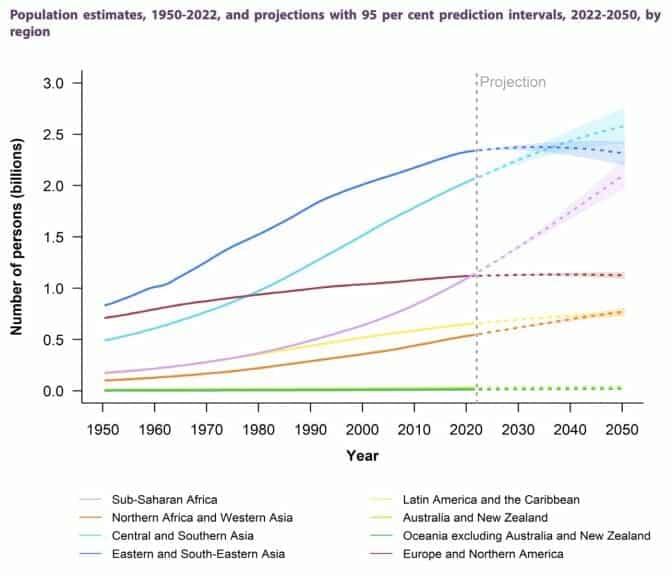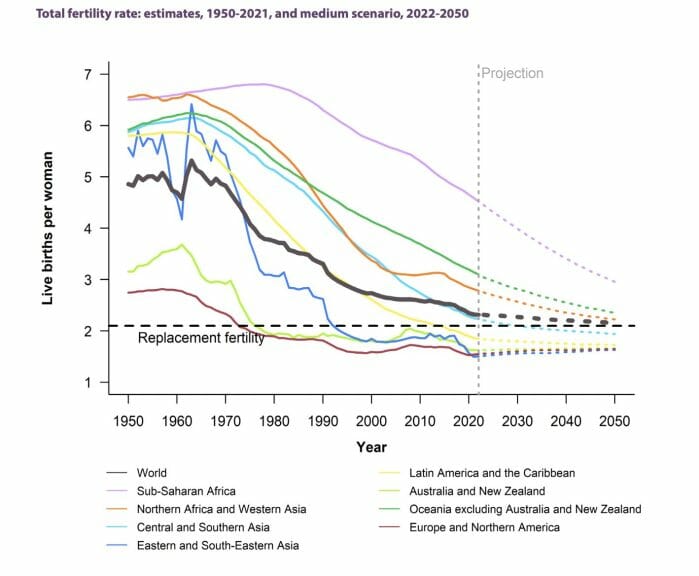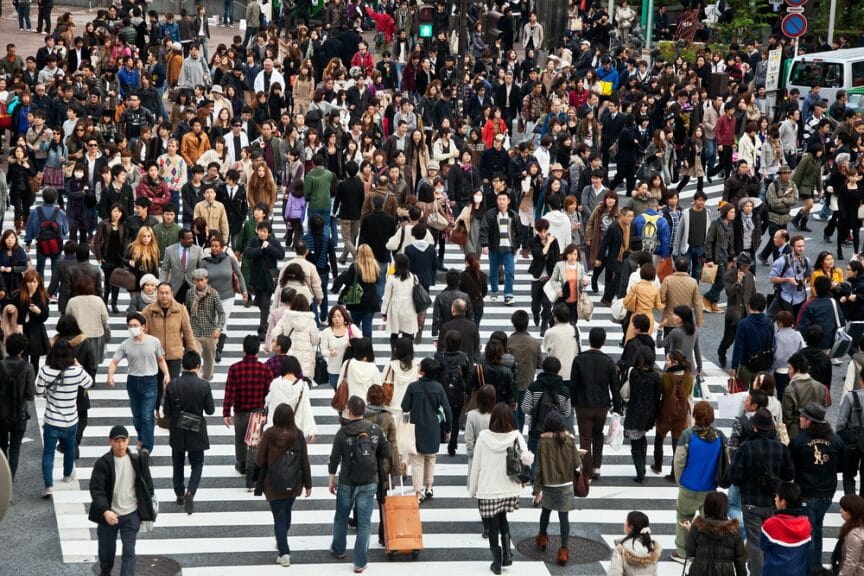Yesterday, November 15, 2022, the global population reached eight billion people, according to their recent report on global population trends and projections, World Population Prospects 2022: Summary of Result.
“This year’s World Population Day falls during a milestone year, when we anticipate the birth of the Earth’s eight billionth inhabitant. This is an occasion to celebrate our diversity, recognize our common humanity, and marvel at advancements in health that have extended lifespans and dramatically reduced maternal and child mortality rates,” commented António Guterres, the UN Secretary-General.
“At the same time, it is a reminder of our shared responsibility to care for our planet and a moment to reflect on where we still fall short of our commitments to one another,” he continued.

The global population is currently growing at a rate under 1% per year, the slowest rate of population growth since 1950. UN projections estimate it will take ten years for the population to reach 8.5 billion people, and five more years to reach 9 billion.
By 2050, they estimate the population will reach 9.7 billion.
Reproduction rates have drastically reduced globally in recent years. It took 12 years for the planet to reach eight billion people from seven billion people––seven billion itself was a milestone achieved less than fifty years after the planet hosted two billion residents.
Today, over two-thirds of the global population lives in a region with a lifetime fertility rate below 2.1 births per woman. This growth rate sustains a population without increase or decrease if mortality rates are low.
While prior estimations for the global population at the turn of the century hovered around 11 billion, current estimates project the population will be 10.4 billion by 2100.

Some regions are even expected to experience population decreases in the coming decades. This is due to low levels of fertility and sometimes increased levels of emigration.
In 2023, India is projected to achieve the status of the most populous country, surpassing China which long held the title.
Populations estimates are merely estimates, but UN officials are confident in their timelines. “We may have passed it [eight billion people], or it may be a bit later, but it’s around this time that humanity is reaching 8 billion,” remarked Patrick Gerland, lead of demographic work at New York’s UN Population Division.
While the UN conducted five-yearly data analyses of population growth for the past several decades, they have recently increased their interval to once per year. Some countries’ populations, however, remain difficult if not impossible to estimate, such as Somalia, Yemen, and Syria, which are experiencing major humanitarian crises and conflicts.
“The accuracy of the underlying, empirical information varies tremendously around the world,” Gerland offered on the matter.
Notably, seemingly minuscule differences in population rates have significant resonances for future decades.

The day our planet reached eight billion people also happened to be the day that world leaders, political advocates, and business owners met in Egypt for COP27 to discuss various implications of and strategies to mitigate climate change. Meetings included discussions of food insecurity, water security, the future of energy, and communities that are vulnerable to environmental changes.
In recent years, there has been sustained debate about the role of increasing populations in climate change. Many argue that is not the number of people on the planet, but the way people use the planet’s resources. The wealthiest 10% of the population uses 20x the amount of energy than the bottom 10% use, largely due to fuel use.
However, others counter by arguing that, regardless of the overuse of resources by the wealthy, a huge population will have devastating ecological consequences for the planet no matter what.
Interested in reading more about the latest trends across the world and the market? Click here to read about the downfall of Depop, the long-beloved online thrift site.














